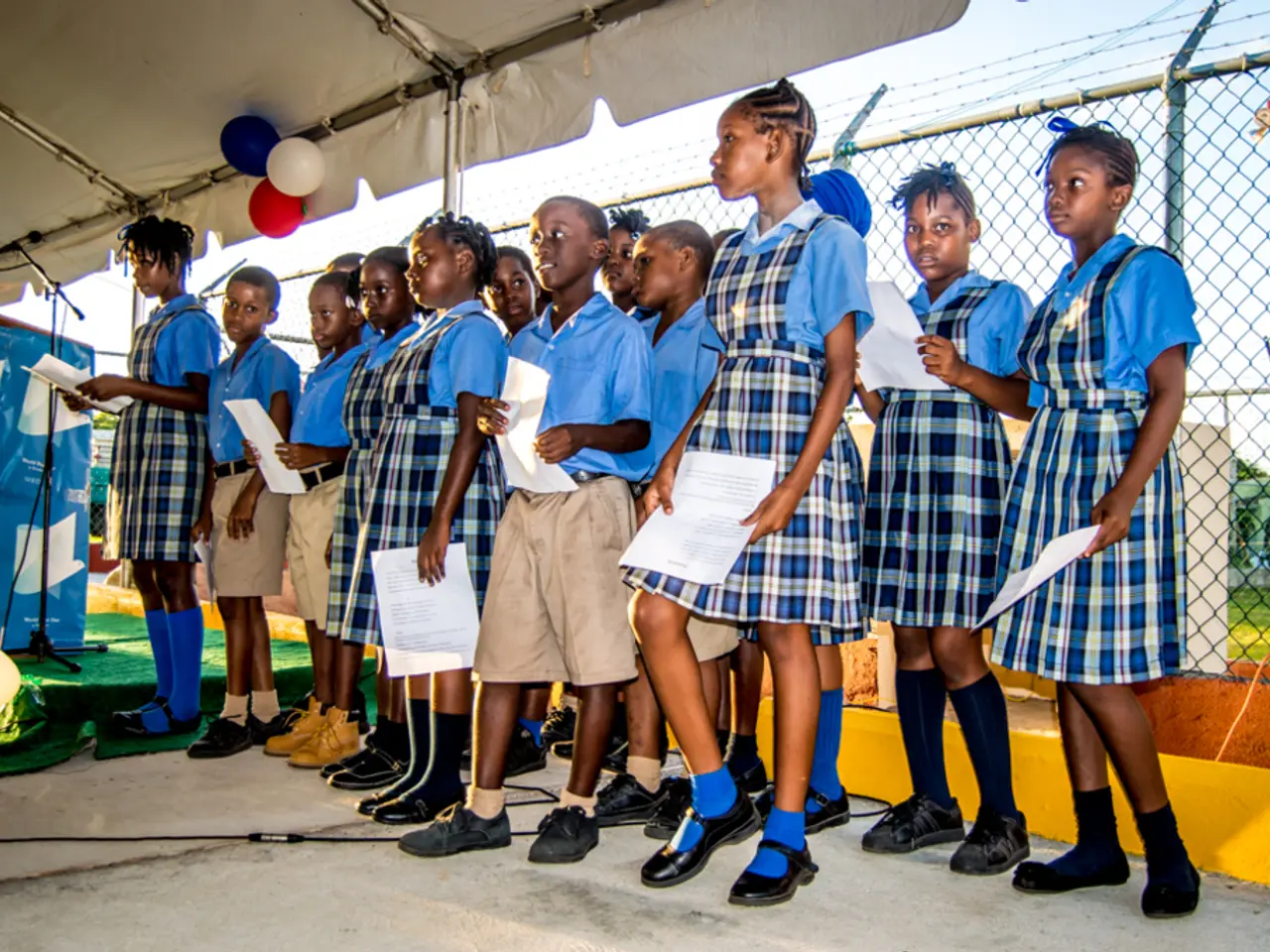Reform schools, grant teachers adaptability: The Left advocates for education overhaul in Thuringia
Thuringia Faces Challenges in Kindergarten and School Sector Amid Declining Population
Thuringia, a region in Germany, is currently grappling with the impact of declining birth rates on its kindergartens and schools. Seven kindergartens in the region are set to close permanently due to this demographic shift, coupled with structural defects and financial bottlenecks.
The Left party in Thuringia has proposed a solution to this issue, calling for a 250 million euro investment program over ten years for kindergartens and schools. This investment is aimed at maintaining small kindergartens and primary schools despite the declining child numbers. The opposition faction suggests that municipalities should receive 100 million euros annually from the federal special fund for education policy restructuring.
However, the CDU state parliamentary faction has criticized these proposals. The Thuringian Teachers' Association, meanwhile, has expressed skepticism about the flexible deployment of primary school teachers at secondary schools, while also supporting the idea of allowing primary school teachers to also teach at regular schools to combat the teacher shortage.
The investment is intended to save locations from closure and allow for flexible teacher deployment. Ongoing discussions also suggest the potential for teachers trained in DDR times to teach at multiple grade levels.
The region's kindergarten landscape is at a turning point due to fewer children in the future. Despite these challenges, efforts focus on addressing these issues with targeted cooperation and practice-oriented education expansion.
In July 2025, Thuringia’s Nordhausen University of Applied Sciences signed a cooperation agreement with a care and disability facility, demonstrating a strategic approach to improving education quality and professional training. This trend points to strategic cooperation and maintaining financial support for early education to sustain quality and accessibility.
While specific current investment figures for Thuringia kindergartens and schools are not detailed, Germany broadly continues to invest in schools with high proportions of socially disadvantaged students, indicating attention to social equity in education infrastructure. Kindergartens and early childhood care remain structured with paid-for places for children under six years old, and state financial supports such as Kindergeld are available for families to help cover kindergarten fees.
In Eastern Thuringia, which is particularly affected by these closures, the situation remains critical. The Left party's demands for additional funding and flexible teacher deployment are being met with criticism, but the need for action is clear. The future of Thuringia's kindergartens and schools hangs in the balance as stakeholders work to find a solution that ensures quality education for all children in the region.
[1] Source for socially disadvantaged students investment [2] Source for Kindergeld and paid-for kindergarten places [4] Source for cooperation agreement
- The Left party in Thuringia has proposed an investment program for education-and-self-development, aiming to allocate 250 million euros over ten years to kindergartens and schools, with the goal of maintaining small kindergartens and primary schools despite the declining child numbers.
- In July 2025, Thuringia’s Nordhausen University of Applied Sciences signed a cooperation agreement for education-and-self-development, demonstrating a strategic approach to improving quality and professional training, particularly in early education. This trend indicates a focus on general-news regarding strategic cooperation and maintaining financial support for early education to sustain quality and accessibility.




